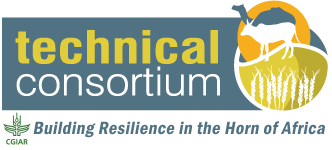-
Pages
-
Posts
-
Documents
- REPORT 12
- REPORT 10
- REPORT 6
- REPORT 4
- REPORT 11
- REPORT 9
- REPORT 8
- REPORT 7
- REPORT 5
- REPORT 3
- Report 1
- RESEARCH PRIORITIES FOR M&E IN THE HORN OF AFRICA
- Our Approach to Applied Resilience
- Report 13
- Report 12
- Report 9
- Report 6
- Report 10
- Report 8
- Report 5
- Report 4
- Report 1
- Spatial Tool Summary Report
- Data gaps in the HOA
- Indicators of community vulnerability and adaptive capacity across the Murray-Darling Basin: a focus on irrigation in agriculture
- Valuing ecosystem services for conservation and development purposes: A case study from Kenya
- Using small-scale adaptation actions to address the food crisis in the Horn of Africa: Going beyond food aid and cash transfers
- Tracking the real value of pastoralism
- Toward resilience: A guide to disaster risk reduction and climate change adaptation
- The road to strengthening community resilience in East Africa: Advocacy report
- The resilience renaissance? Unpacking of resilience for tackling climate change and disasters
- The relevance of 'resilience'?
- The interplay of well-being and resilience in applying a social-ecological perspective
- The characteristics of resilience building: a discussion paper
- Testing for household resilience to food insecurity: evidence from Nicaragua
- Should enhanced resilience be an objective of natural resource management research for developing countries?
- Securing life and livelihoods in rural Afghanistan: the role of social relationships
- Rethinking ecosystem resilience in the face of climate change
- Resilience, vulnerability and adaptive capacity: Implications for system performance
- Resilience, panarchy and world-systems analysis
- Resilience, food security dynamics and poverty traps in Northern Ethiopia: Analysis of a Biannual Panal Dataset 2011-2013
- Resilience and vulnerability: Complementary or conflicting concepts?
- Resilience: New utopia or new tyranny? Reflection about the potentials and limits of the concept of resilience in relation to vulnerability reduction programmes
- Promoting resilient livelihoods through adaptive social protection: lessons from 124 programmes in South Asia
- Promoting innovation and evidence-based approaches to resilience and responding to humanitarian crises: A DFID strategy paper
- Pastoralists, Peace and Livelihoods: Economic interventions to build peace in Karamoja, Uganda
- Pastoralism in the Horn of Africa: Diverse livelihood pathways
- Pastoralism: drylands' invisible asset? Developing a framework for assessing the value of pastoralism in East Africa
- Options for including disaster resilience in post-2015 development goals
- Moving up or moving out? A rapid livelihoods and conflict analysis in Mieso-Mulu Woreda, Shinile Zone, Somali Region, Ethiopia
- Managing Famine Risk: Linking early warning to early action
- Livestock livelihoods and institutions in the IGAD region
- Livelihoods strategies and household resilience to food insecurity: an empirical analysis to Kenya
- Livelihoods in protracted crises
- International model for policy analysis of agricultural commodities and trade (IMPACT): Model description
- Integrating climate change adaptation into public health practice: Using adaptive management to increase adaptive capacity and build resilience
- Indicators of adaptive capacity to climate change for agriculutre in the Prairie Region of Canada
- Improving the resilience of small farm households through research partnership: A review of evidence from CPWF projects
- IASC real-time evaluation of the humanitarian response to the Horn of Africa drought crisis
- HECA regional food security and livelihoods framework (Draft)
- Global public policy narratives on the drylands and pastoralism
- From Poverty to Power
- From metaphor to measurement: Resilience of what to what?
- From conflict to coping: Evidence from Southern Ethiopia on the contributions of peacebuilding to drought resilience among pastoralist groups (Research Brief)
- From conflict to coping: Evidence from Southern Ethiopia on the contributions of peacebuilding to drought resilience among pastoralist groups
- Focusing the meaning(s) of resilience: Resilience as a descriptive concept and a boundary object
- Famine early warning and early action: The cost of delay
- EU approach to resilience: Learning from food crises
- Enhancing resilience to food security shocks in Africa: Discussion paper
- Enhancing resilience to food security shocks: White paper (draft)
- Enhancing resiience to food insecurity amid protracted crisis
- Enhancing resilience in the Horn of Africa: an exploration into alternative investment options
- Enhancing Resilience in the Horn of Africa
- Emergency Market Mapping and Analysis (EMMA)
- Determinants of food security in Kenya, a gender perspective
- Designing resilient, sustainable systems
- Cattle raiding in Karamoja
- Building resilience: bridging food security, climate change adaptation and disaster risk reduction
- Adaptation to environmental change
- A conceptual anaylsis of livelihoods and resilience
- Brief 6
- Brief 5
- Brief 4
- Brief 3
- Brief 2
- Brief 1
- The next generation of scenarios
- The determinants of vulnerability
- Technical Consortium: Measuring Resilience
- Summary of the expert consultation on resilience measurement for food security
- Resilience, Panarchy and World-Systems Analysis
- Oxfam's approach for assessing effectiveness in building resilience and adaptive capacity
- Monitoring and measuring change in the market systems
- Measuring Resilience
- Measuring for the reduction of uncertainty
- Indicators for social and economic coping capacity
- Geographic distribution and environmental characterization
- From metaphor to measurement: resilience of what to what?
- Expert consultation on measuring resilience
- Emergency Market Mapping and Analysis
- Derivation of a household-level vulnerability index
- An indicator framework for assessing
- African Drylands spatial analysis and baseline data
- Accessibility Mapping_RuralPoverty
- A methodological review of resilience measurement scales
- A conceptual analysis of livelihoods and resilience
- A Bayesian approach
- Indicator selection
- Decision analysis modelling
- Data catalogue
- Systems approach



